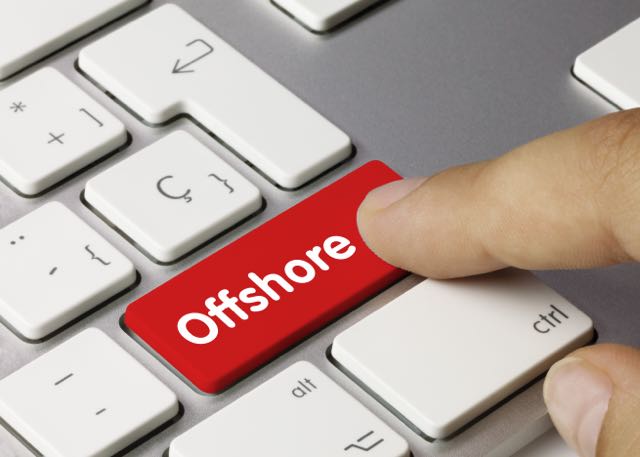Offshore Company Formation: Making Best Use Of Growth Potential
Offshore Company Formation: Making Best Use Of Growth Potential
Blog Article
Techniques for Cost-Effective Offshore Business Formation
When considering offshore business formation, the pursuit for cost-effectiveness ends up being an extremely important issue for companies seeking to broaden their operations worldwide. offshore company formation. By checking out nuanced strategies that mix legal compliance, economic optimization, and technological advancements, companies can embark on a path in the direction of overseas business formation that is both economically prudent and strategically sound.
Selecting the Right Jurisdiction
When establishing an offshore firm, picking the appropriate territory is an important decision that can substantially affect the success and cost-effectiveness of the formation process. The territory selected will certainly determine the regulative structure within which the company runs, influencing tax, reporting demands, privacy regulations, and general service versatility.
When picking a jurisdiction for your offshore company, a number of elements must be considered to make sure the choice straightens with your strategic goals. One critical aspect is the tax regimen of the jurisdiction, as it can have a substantial effect on the company's earnings. Additionally, the degree of regulatory compliance needed, the economic and political stability of the territory, and the convenience of doing business must all be assessed.

Furthermore, the credibility of the jurisdiction in the international service area is important, as it can affect the perception of your firm by customers, companions, and banks - offshore company formation. By meticulously examining these variables and seeking professional guidance, you can choose the ideal territory for your overseas business that optimizes cost-effectiveness and supports your business objectives

Structuring Your Company Efficiently
To guarantee ideal performance in structuring your offshore business, thorough attention must be provided to the organizational framework. The initial action is to define the business's possession framework clearly. This includes figuring out the policemans, shareholders, and directors, in addition to their responsibilities and roles. By developing a clear ownership structure, you can make sure smooth decision-making processes and clear lines of authority within the firm.
Following, it is vital to think about the tax effects of the picked structure. Different territories offer differing tax obligation advantages and motivations for overseas companies. By very carefully assessing the tax laws and policies of the chosen territory, you can maximize your business's tax efficiency and minimize unneeded expenditures.
Moreover, maintaining appropriate paperwork and documents is essential for the effective structuring of your offshore company. By maintaining exact and current documents of monetary transactions, corporate decisions, and compliance records, you can ensure openness and accountability within the company. This not only helps with smooth operations but additionally assists in showing compliance with regulatory requirements.
Leveraging Technology for Savings
Efficient structuring of your offshore company not only pivots on meticulous attention to organizational frameworks but also on leveraging innovation for savings. One means to utilize technology for savings in offshore firm development is by making use of cloud-based solutions for data storage space and cooperation. By integrating innovation strategically into your overseas firm development process, you can accomplish substantial savings while enhancing operational performance.
Reducing Tax Liabilities
Using calculated tax obligation preparation techniques can properly reduce the financial burden of tax liabilities for offshore companies. Furthermore, taking benefit of tax obligation rewards and exemptions supplied by the territory where the overseas business is registered can result in considerable savings.
One more method to decreasing tax obligations is by read review structuring the overseas business in a tax-efficient way - offshore company formation. This includes thoroughly creating the ownership and operational structure to optimize tax advantages. Setting up a holding company in a territory with favorable tax legislations can aid decrease and settle profits tax direct exposure.
Furthermore, staying updated on worldwide tax policies click for source and conformity demands is essential for reducing tax obligations. By making certain stringent adherence to tax laws and laws, offshore business can stay clear of pricey fines and tax obligation disputes. Looking for specialist suggestions from tax professionals or lawful specialists focused on international tax matters can additionally provide valuable insights right into effective tax planning approaches.
Guaranteeing Compliance and Danger Reduction
Applying robust conformity procedures is important for offshore companies to mitigate threats and maintain regulative adherence. Offshore jurisdictions often deal with enhanced scrutiny as a result of problems relating to money laundering, tax obligation evasion, and various other monetary criminal activities. To guarantee conformity and mitigate threats, overseas business must conduct extensive due diligence on clients and business partners to avoid involvement in illicit tasks. Furthermore, executing Know Your Customer (KYC) and Anti-Money Laundering (AML) treatments can help confirm the authenticity of deals and guard the firm's track record. Regular audits and evaluations of monetary documents are vital to recognize any kind of abnormalities or non-compliance issues immediately.
In click here to read addition, staying abreast of altering laws and legal requirements is vital for offshore companies to adapt their compliance practices appropriately. Involving legal professionals or compliance consultants can provide useful support on navigating intricate governing landscapes and making sure adherence to global criteria. By prioritizing conformity and threat mitigation, offshore firms can boost openness, construct count on with stakeholders, and secure their operations from potential lawful repercussions.
Conclusion

Making use of strategic tax planning techniques can successfully minimize the economic problem of tax liabilities for offshore business. By dispersing profits to entities in low-tax territories, overseas business can legitimately decrease their overall tax obligation responsibilities. Furthermore, taking advantage of tax motivations and exemptions supplied by the territory where the offshore company is signed up can result in significant cost savings.
By ensuring rigorous adherence to tax laws and regulations, offshore companies can avoid pricey penalties and tax obligation conflicts.In conclusion, cost-effective offshore firm formation needs cautious consideration of jurisdiction, efficient structuring, modern technology usage, tax minimization, and compliance.
Report this page